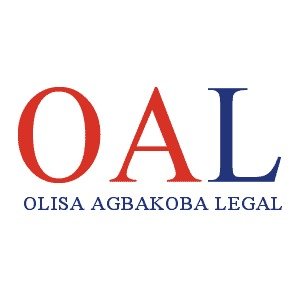Best International Trade Law Lawyers in Apapa
Share your needs with us, get contacted by law firms.
Free. Takes 2 min.
List of the best lawyers in Apapa, Nigeria
About International Trade Law in Apapa, Nigeria
International Trade Law in Apapa, Nigeria, is a specialized field that governs the rules and customs of trade between Nigeria and other countries. Apapa is a vital hub for Nigeria's international commerce as it hosts one of the country's most important ports, facilitating the import and export of goods. The legal framework governing international trade in Apapa includes national legislation, international conventions, trade agreements, and customary trade practices. Understanding these laws is crucial for businesses and individuals engaged in commercial activities across borders.
Why You May Need a Lawyer
Legal assistance in International Trade Law might be necessary under several circumstances. These include disputes over international contracts, issues with customs and tariffs, compliance with international trade regulations, fraud, and other cross-border legal challenges. Lawyers specialized in this field can provide guidance on navigating complex legal landscapes, ensuring compliance with both local and international trade laws, and representing clients in disputes and negotiations.
Local Laws Overview
The legal framework for international trade in Apapa involves several key aspects, including:
- Compliance with the Nigerian Customs Service regulations for import and export activities.
- Adherence to international trade agreements that Nigeria is part of, such as the African Continental Free Trade Area (AfCFTA).
- Understanding and applying tariffs, duties, and exemptions as per Nigerian trade policies.
- Observance of maritime laws relevant to the port operations in Apapa.
- Ensuring that all trading practices meet the standards set by international bodies like the World Trade Organization (WTO).
Frequently Asked Questions
What is International Trade Law?
International Trade Law comprises legal regulations and agreements that govern trade between countries. It includes treaties, customs laws, and regulations that nations must follow when engaging in international commerce.
How does International Trade Law affect businesses in Apapa?
Businesses in Apapa must comply with various international and national trade laws to legally import and export goods. Failure to adhere to these laws can result in penalties, fines, or bans.
Do I need a lawyer to engage in international trade in Apapa?
While it is not mandatory to have a lawyer, legal expertise can help you navigate complex trade laws, ensure compliance, and protect your business interests in cross-border transactions.
What are common legal issues in international trade in Apapa?
Common issues include breach of contracts, shipping disputes, tariff classifications, intellectual property rights, and regulatory compliance.
How can I resolve an international trade dispute?
Disputes can be resolved through negotiations, arbitration, or litigation, depending on the nature of the conflict and the agreements in place. Legal advice is often necessary to determine the best approach.
What role does the Nigerian Customs Service play in trade law?
The Nigerian Customs Service is responsible for enforcing import and export regulations, collecting customs duties, and preventing smuggling. It plays a crucial role in facilitating legal international trade operations.
Are there specific trade agreements Nigeria is part of that affect Apapa traders?
Yes, Nigeria is part of several trade agreements, including the African Continental Free Trade Area (AfCFTA) and the Economic Community of West African States (ECOWAS), which impact how trade is conducted in Apapa.
What should I consider when drafting an international trade contract?
Key considerations include clearly defined terms, applicable law, dispute resolution mechanisms, and compliance with both local and international trade laws.
What are the consequences of non-compliance with trade laws?
Consequences can range from financial penalties and seizure of goods to reputational damage and bans from international markets.
Where can I find more information about international trade laws in Nigeria?
You can consult with legal professionals, governmental bodies such as the Ministry of Industry, Trade and Investment, and trade organizations for comprehensive information.
Additional Resources
Here are some resources that might help:
- The Nigerian Ministry of Industry, Trade and Investment for policy and regulatory updates.
- The Nigerian Customs Service for import/export procedures and regulations.
- The Lagos Chamber of Commerce and Industry (LCCI) for networking and support.
- The International Chamber of Commerce Nigeria for international trade insights.
- World Trade Organization (WTO) resources to understand global trade practices.
Next Steps
If you are seeking legal assistance in International Trade Law, consider the following steps:
- Identify the specific legal issue you are facing.
- Consult with a lawyer who specializes in International Trade Law in Apapa.
- Gather all relevant documents related to your trade activities.
- Discuss potential strategies and compliance measures with your lawyer.
- Ensure any legal actions are taken promptly to avoid further complications.
Lawzana helps you find the best lawyers and law firms in Apapa through a curated and pre-screened list of qualified legal professionals. Our platform offers rankings and detailed profiles of attorneys and law firms, allowing you to compare based on practice areas, including International Trade Law, experience, and client feedback.
Each profile includes a description of the firm's areas of practice, client reviews, team members and partners, year of establishment, spoken languages, office locations, contact information, social media presence, and any published articles or resources. Most firms on our platform speak English and are experienced in both local and international legal matters.
Get a quote from top-rated law firms in Apapa, Nigeria — quickly, securely, and without unnecessary hassle.
Disclaimer:
The information provided on this page is for general informational purposes only and does not constitute legal advice. While we strive to ensure the accuracy and relevance of the content, legal information may change over time, and interpretations of the law can vary. You should always consult with a qualified legal professional for advice specific to your situation.
We disclaim all liability for actions taken or not taken based on the content of this page. If you believe any information is incorrect or outdated, please contact us, and we will review and update it where appropriate.










